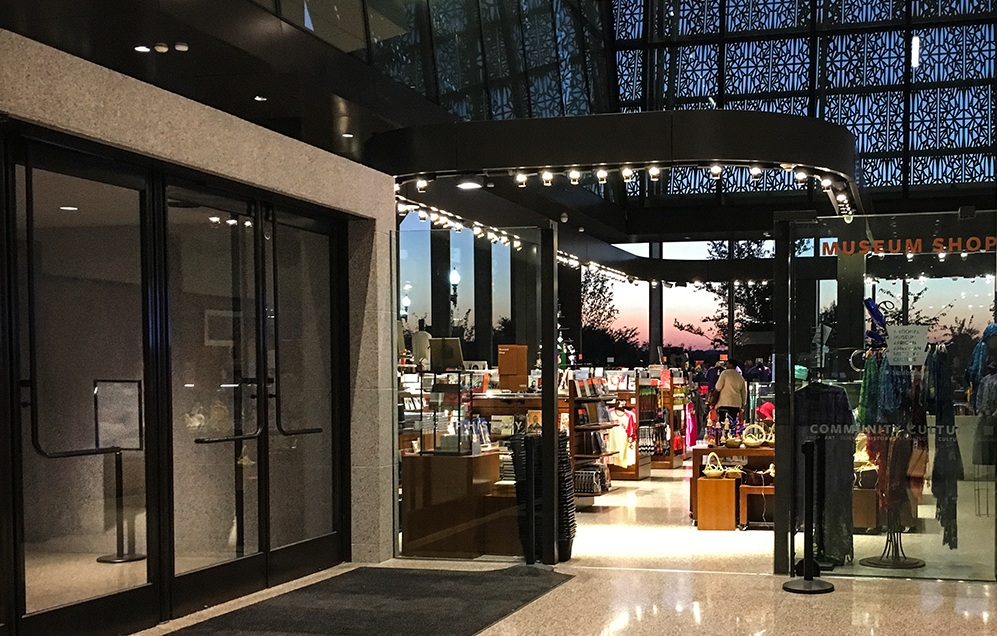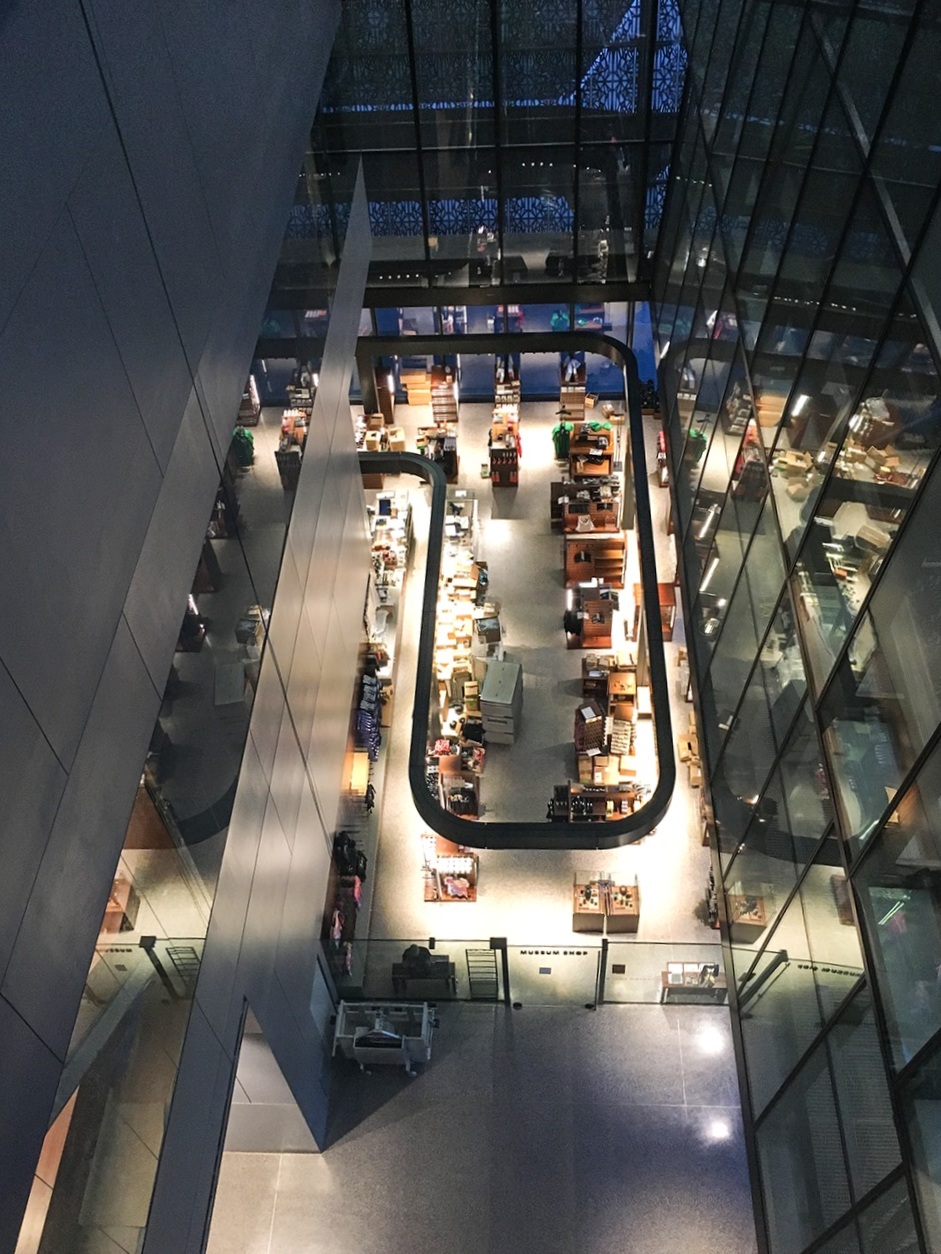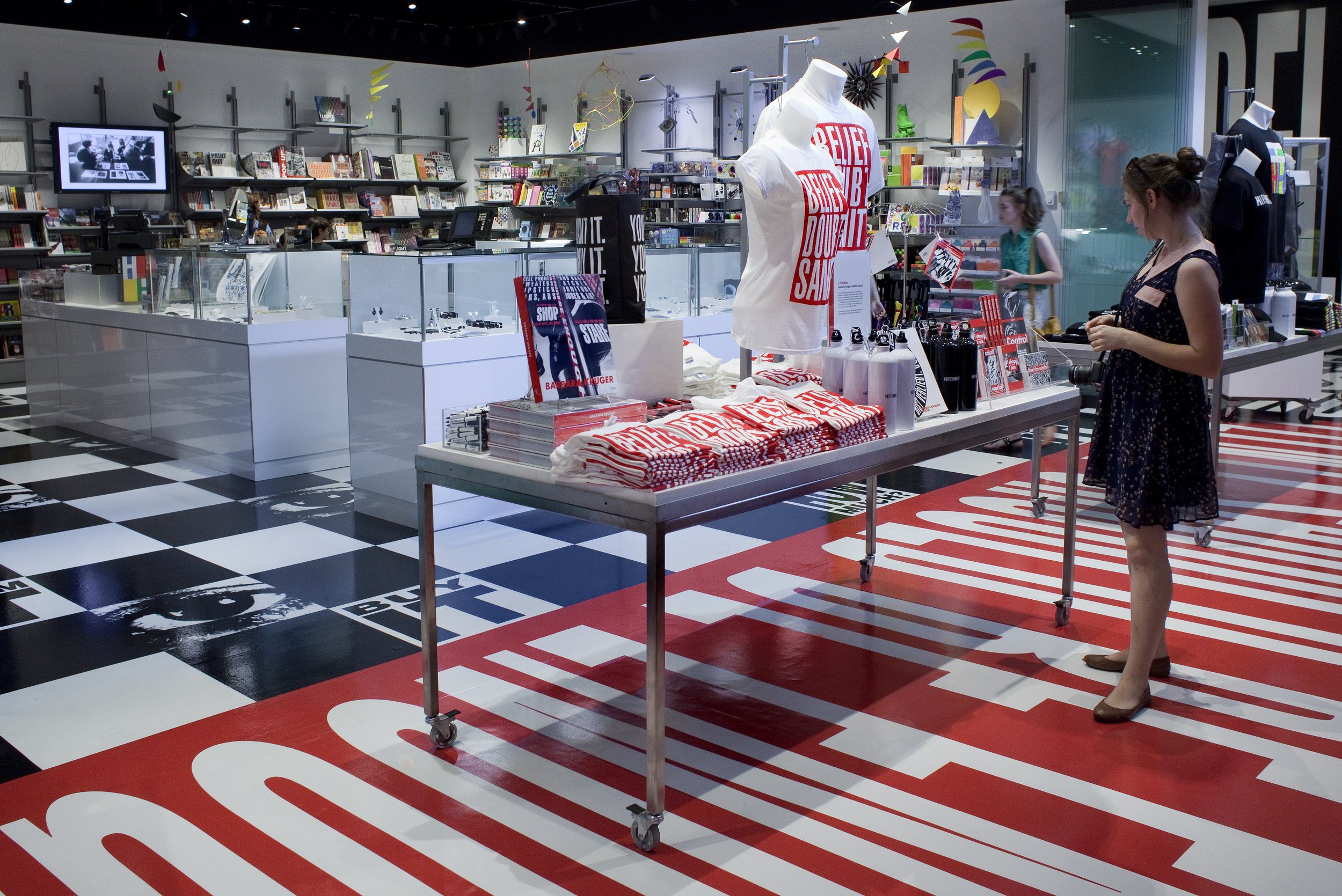Rochester Museum and Science Center
STRASENBURGH PLANETARIUM
Same Sky
Same Sky explores the universal importance of sky watching through unique cultural perspectives. Developed in partnership with Indigenous Knowledge Keepers, this new permanent exhibition at the RMSC Strasenburgh Planetarium illuminates Haudenosaunee, Diné, and Maya approaches—both ancient and contemporary—to observing and understanding the sky and celestial bodies. In their own words, Indigenous scientists, educators, artists, and storytellers teach visitors about the connections between the sky and our lives as they feature artwork, technologies and traditions, ecological knowledge, and cosmologies specific to their heritage.
Rochester’s Eyes in Space
Rochester’s Eyes in Space is an interactive permanent exhibition at the RMSC Strasenburgh Planetarium that engages visitors with technologies pioneered in the Rochester region that allow us to view distant stars, explore other planets, and better see what is happening on Earth.
See the optical system from GAMBIT 1 (KH-7), a previously classified spy satellite using a camera and film developed by Eastman Kodak in the 1960s. Explore the components of the GAMBIT optical system through interactive lighting and analyze some of the photographs taken behind the iron curtain of the former Soviet Union. Hands-on experiences will challenge guests to solve design problems faced by the men and women of Eastman Kodak. How do you cancel motion blur with a camera moving 18,000 miles per hour? Try your hand at grabbing the film recovery “bucket” out of midair as you mimic its historic plane capture process, complete with an actual parachute from a later satellite mission.
Visit the interactive timeline and discover stories of Rochester technologies spanning glass innovations by Corning, which led to the largest telescope in the world, to L3Harris’ work building and testing the James Webb Space Telescope, which is helping scientists study the formation of the first stars and galaxies. Pilot the Ingenuity helicopter and get hands-on commanding a Mars rover where you’ll take on a special mission and learn about the optical components developed for each rover by Optimax. Celebrate the perseverance and ingenuity of the women and men from Rochester that continue to enable us to understand our world – both on planet Earth and beyond. (RMSC)
Particular attention must be paid to the specificity of cultural goods and services which, as vectors of identity, values and meaning, must not be treated as mere commodities or consumer goods.
–UNESCO Universal Declaration on Cultural Diversity
National Museum of African American History and Culture
SMITHSONIAN INSTITUTION
Sweet Home Café
Sweet Home Café showcases the rich culture and history of the African American people with traditional, authentic offerings as well as present-day food traditions. [It] uses the very best version of classic dishes and employs a high degree of from-scratch cooking with locally-sourced ingredients. Four distinct stations each tell the story of the regional offerings: The Agricultural South, The Creole Coast, The North States, The Western Range. >
We have to do right by our culture, really push forth the stories and please the people that come in this café. The cafe is a piece of the museum. We are an exhibit just like anything else, but we tell stories through food. >
To me, it’s about showing people’s migration in the U.S., and for a long time, the ones doing most of the cooking anywhere were black.
People think collards and cornbread, and that’s part of the experience. The surprising thing—and what I’d hoped would happen—is that even as African Americans, you get to know more about this vast culture. I’m the first one to admit that growing up, until I left Tennessee, I thought all black people ate the way that I ate. This is really about getting to know more about my community.
Take a seat beneath a blown-up black-and-white of the 1960 lunch counter sit-in at a Woolworth’s in Greensboro, North Carolina; it’ll give you some food for thought.
Museum Shop
National Museum of the American Indian
SMITHSONIAN INSTITUTION
Mitsitam Espresso
Mitsitam Espresso Coffee Bar serves pastries and casual fare from the cafe’s repertoire along with Tribal Grounds Coffee—organic, fair-trade coffee grown by indigenous farmers and imported, roasted and provided to the museum by members of the Eastern Band of Cherokee of North Carolina. Specialty drinks include the “Trail South,” a cappuccino flavored with roasted chestnuts and cocoa powder, and “The Sequoyah,” a cappuccino with sweetened milk, cocoa and cayenne. The coffee bar’s menu includes Cherokee translations for each drink as part of the Western Carolina University Cherokee Language Program, which began in 2006 to boost the dwindling number of Cherokee speakers. >
These are foods that became as fundamental to indigenous cultures as song, dance, story, art and ceremony…our visitors experience native cultures and indigenous foods in ways that appeal to all the senses, transcending the limits of a museum exhibition.
–Kevin Gover, Director, National Museum of the American Indian
It’s not just food service to us. We built it into this museum; we built it in as a living exhibit. We are part of this museum; we’re the food of the museum.
–Richard Hetzler, Mitsitam Executive Chef
The tribal newsstand allows visitors to browse Native-owned publications from across the U.S. and learn about local and national issues from an indigenous perspective. Publications include Indian Country Today, The Seminole Tribune, The Navajo Times, The Lakota Country Times, Osage News, The Southern Ute Drum, The Chickasaw Times, The Comanche Nation News, among others, as well as the museum’s own quarterly magazine, American Indian.
A signature element of the Cafe extended seating area is the 20-foot totem pole carved by Tlingit artist Nathan Jackson of Ketchikan, Alaska. The pole connects the first floor Cafe with the second floor Roanoke Museum Store. The totem pole represents the story of Kats, the Bear Clan Hunter, a traditional figure in stories of the Cape Fox region Bear Clan. >
Hirshhorn Museum
SMITHSONIAN INSTITUTION
Hirshhorn Museum Shop
Throughout the museum, we are emphasizing the artist’s voice. We are committed to curating all of the Hirshhorn’s public areas, not only those already thought of as exhibition spaces. Barbara Kruger’s work interrogates the way power and money flow in contemporary society. Having her intervene in a part of the building that is at once a social site and a place of commerce amplifies both her concerns and those of the Hirshhorn.–Richard Koshalek, Hirshhorn Museum Director

























